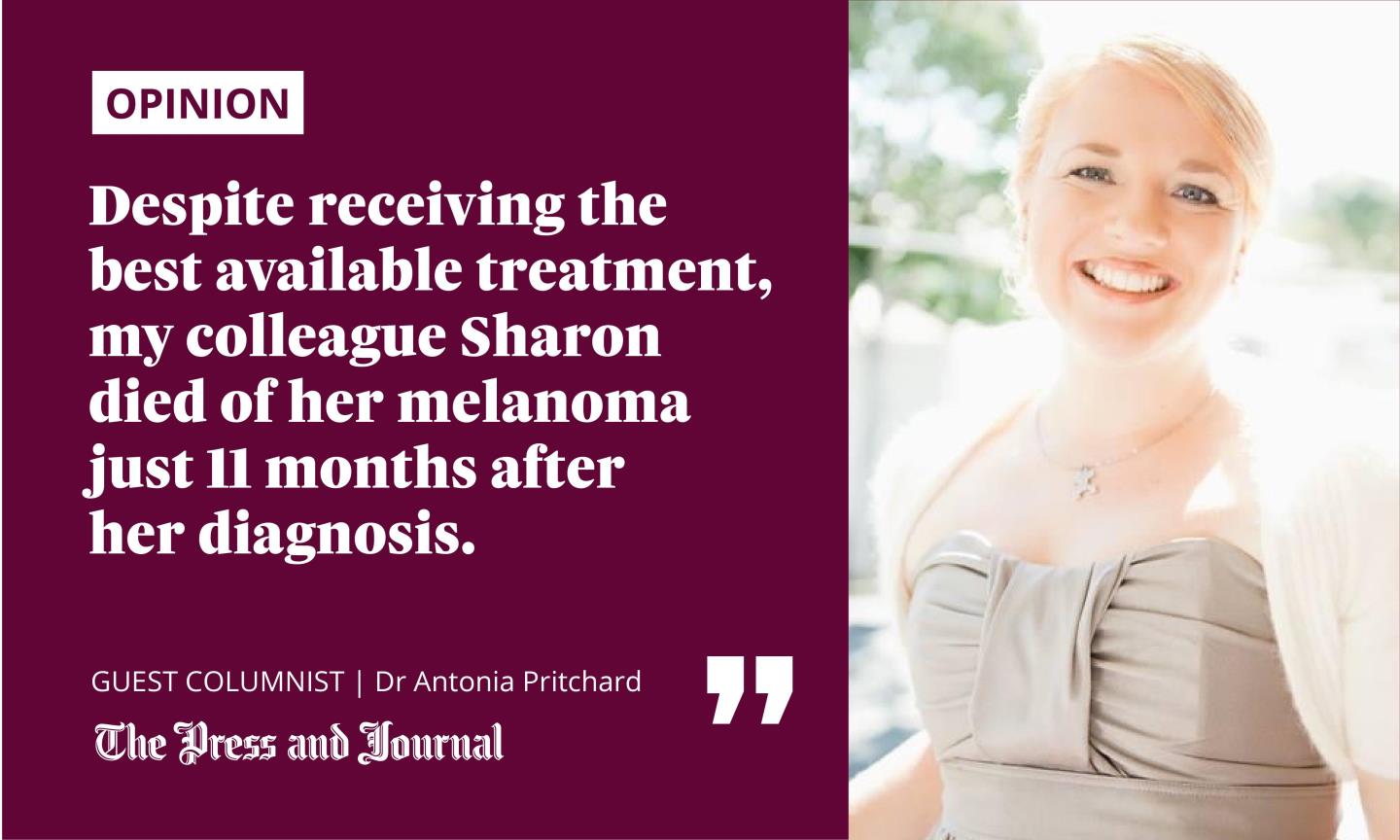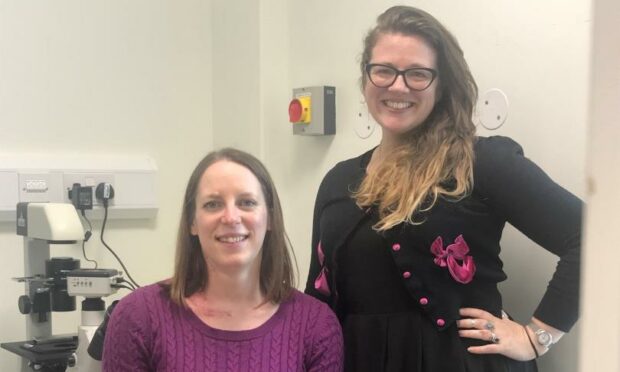In May 2019, my colleague Dr Sharon Hutchison and I wrote an article for The Press and Journal headlined “Stay aware of melanoma – in all its guises”.
This piece was written to coincide with Melanoma Awareness Month, and introduced our melanoma research group at the University of the Highlands and Islands to the local community.
What we did not reveal then was that Sharon had, herself, been diagnosed with a cutaneous (skin) melanoma just a few months earlier, in January 2019.
Her melanoma arose from a mole on her neck, which she had quickly noticed the changes in and visited her GP, who immediately referred her to a dermatologist.

It is not only changes to existing moles that can be a sign of cancerous cells, but also the appearance of a new mole or lesion on the skin. The changes to look out for can be remembered as: A – asymmetry, B – uneven borders, C – colour changes and D -diameter changes. Sharon’s mole had developed uneven borders and a colour change.
When our previous article was published in May 2019, Sharon had just undergone surgery for stage 3 disease, which means her melanoma had spread, to lymph nodes in her neck.
Sadly, Sharon’s melanoma was particularly aggressive. Despite receiving the best available treatment, she died of her melanoma just 11 months after her diagnosis, that December.
This was a truly devastating time, and she is deeply missed every day.
New melanoma research is needed
We have recently unveiled our new fundraising initiative, which will raise money for melanoma research at the University of the Highlands and Islands, in honour of Sharon.
Fundraising will include events that are in keeping with some of the things Sharon loved to do, including exercise challenges, enjoying the beautiful outdoors of the Highlands, crafts, baking and anything involving dogs.
The funds raised will be in support of our new study called MyMelanoma, which will be officially launched later in 2022.
MyMelanoma is an ambitious new UK-wide research project, aiming to recruit over 20,000 individuals who have been diagnosed with a melanoma at any time in their life.
This study is being coordinated by researchers at the University of Leeds, the University of Oxford and the University of the Highlands and Islands.
A study inspired by patients, for patients
The idea for MyMelanoma came from the members of a melanoma patient support group who wanted there to be a research study that specifically addressed some important queries from people who had been diagnosed with a melanoma.
This includes questions on why some individuals are more likely to develop a melanoma than others, and why some people do not have a good response to treatment.
If there is anything you have been worried about, make an appointment with your GP. Please do it in memory of Sharon.”
The participants in the MyMelanoma study will be able to sign up using a dedicated portal, where there will be a variety of questionnaires to complete and the opportunity to donate samples for research in the laboratory.
While registration is not yet open, you can express your interest in the study via the email address at the bottom of this article.
Sharon was passionate about encouraging people to check their skin for changes and to visit their GP with any concerns they might have.
Research from Cancer Research UK shows that there has been a significant drop in people making these kinds of appointments with their GP during the Covid-19 pandemic.
This has resulted in an increase in cancer diagnoses at a later stage, which can make them harder to treat.
I, therefore, want to end with an encouragement – if there is anything you have been worried about, make an appointment with your GP. Please do it in memory of Sharon.
- To pre-register your interest in taking part in the MyMelanoma study, email: MyMelanoma@uhi.ac.uk
Dr Antonia Pritchard is a reader at the department of genetics and immunology, which is in the division of biomedical sciences at the University of the Highlands and Islands
Related:
Blood test could detect recurrent melanoma up to a year before scans

